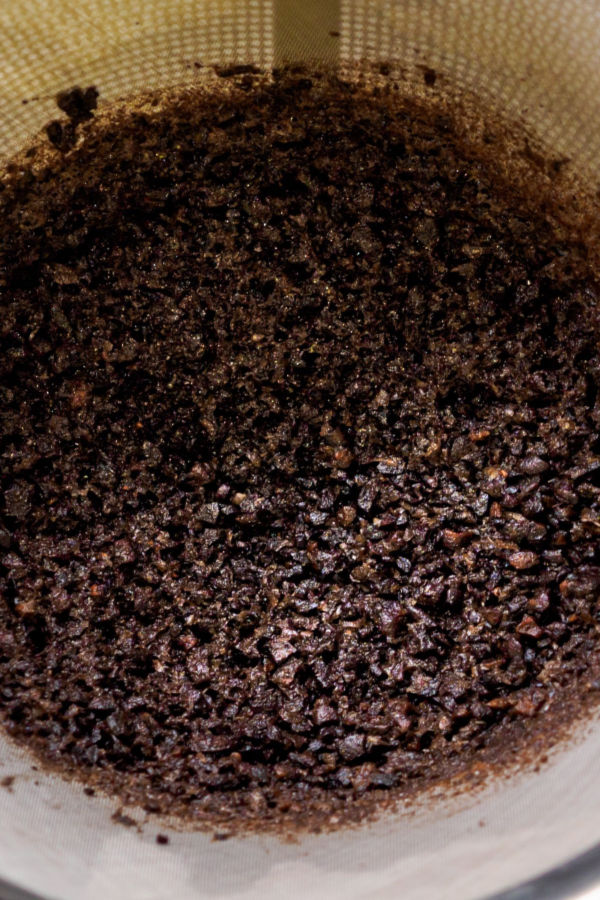Is It Safe to Dispose of Coffee Grounds Down the Sink? - Understanding the Impact
Is It Safe to Dispose of Coffee Grounds Down the Sink? - Understanding the Impact
Blog Article
The article following next in relation to Can You Put Coffee Grounds in the Sink Garbage Disposal? is highly intriguing. Give it a go and draw your own assumptions.

If you're a passionate coffee drinker, you could be wondering about the very best means to dispose of your coffee grounds. While it may seem practical to wash them down the sink, this method can result in several problems for both your plumbing and the environment. In this post, we'll explore whether it's secure to place coffee premises down the sink and go over alternative disposal approaches to think about.
Threats of Putting Coffee Grounds Down the Sink
Plumbing Issues
One of the main concerns with throwing away coffee premises down the sink is the threat of obstructing your pipelines. Coffee grounds do not liquify in water and can build up gradually, developing a dense sludge that can obstruct drains and bring about expensive plumbing repair services.
Ecological Impact
Past the possible damages to your plumbing, placing coffee grounds down the sink can likewise harm the atmosphere. When washed right into the sewer system, coffee grounds can contribute to obstructions in drain lines and treatment centers. In addition, the high concentration of organic matter in coffee grounds can deplete oxygen levels in waterways, negatively impacting aquatic life.
Alternatives to Disposing of Coffee Grounds
Composting
One environment-friendly choice for disposing of coffee premises is to compost them. Coffee premises are abundant in nitrogen, making them a superb enhancement to compost piles or containers. As they disintegrate, they add nutrients to the dirt, improving its fertility and structure.
Garbage Disposal
If you don't have a composting arrangement, another choice is to merely throw your coffee grounds in the trash. Make certain to secure them in a compostable bag or container to prevent odors and leak. While this approach does not offer the same environmental benefits as composting, it's a safe and practical means to dispose of coffee grounds.
Tips for Proper Disposal
Utilize a Sink Strainer
To avoid coffee premises from entering your sink's drain in the first place, think about utilizing a sink strainer. These economical tools catch solid particles, consisting of coffee premises, avoiding them from triggering obstructions.
Regular Maintenance
Despite exactly how you pick to deal with your coffee grounds, it's necessary to maintain your plumbing on a regular basis. Arrange regular drain cleansings to eliminate any accumulation and make certain that your pipes stay clear and free-flowing.
Conclusion
While it may be appealing to clean coffee premises down the sink for benefit, doing so can have severe effects for your plumbing and the environment. Instead, think about composting your coffee grounds or disposing of them in the trash. By adopting responsible disposal practices, you can enjoy your coffee guilt-free while reducing your ecological footprint.
Coffee Grounds Down The Drain: Are They OK?
Can Coffee Grounds Go Down the Sink?
You may be thinking, “But I pour them down the sink drain every day and I’ve never had a clogged drain!” You see, coffee grounds come from coffee beans, which are virtually rock hard by the time they’re ground and brewed. You certainly wouldn’t want to grind up the pit from a peach, apricot, or nectarine that is about just as hard because they wouldn’t break down like other foods, and it’s the same with coffee beans!
If you usually grind coffee beans in the garbage disposal because it seems the cleanest and convenient, we don’t fault you for that. And anyone who has ever had to clean up the trash with spilled coffee grounds after a dog got into it would understand the rationale. Unfortunately, coffee grounds do not break down in water, so instead of grinding up and washing away as normal foods do in a garbage disposal, they clump together and as time goes by, the grounds can form a clump and pack the drain until it develops a clog.
What to Do With Coffee Grounds
So, what do you do with coffee grounds if you can't put them down the drain? You could of course just throw them in the garbage, but we encourage you to give these practical uses for them a try!
Since coffee grounds contain key minerals for plant growth, you can use them to fertilize your garden. Coffee grounds not only fertilize gardens because they are mineral-rich, but they are also great at absorbing contaminants in the soil, particularly heavy metals. Coffee grounds are said to attract worms, which help gardens flourish. You can use coffee grounds as fertilizer by sprinkling them around your plants. You can compost your coffee grounds and use them at a later time. Coffee grounds are great insect repellents when you place them in bowls or sprinkle them around the areas you want to repel insects. To remove fleas from your dog or cat, simply shampoo your pet then rub coffee grounds throughout their fur. Rinse them off and dry as usual. Like baking soda, used coffee grounds can eliminate odors. You can place them in a bowl in the fridge and let them do the work! Mix coffee grounds with coconut oil for a wonderful face or body scrub, or to reduce the appearance of cellulite. https://www.wintershomeservices.com/blog/2019/august/coffee-grounds-down-the-drain-are-they-ok-/

We hope you liked our part on Can You Put Coffee Grounds in the Sink Garbage Disposal?. Thanks so much for taking the time to browse our article. Remember to set aside a second to distribute this blog if you enjoyed reading it. Thank you for your time. Don't hesitate to pay a visit to our website back soon.
Schedule Today Report this page